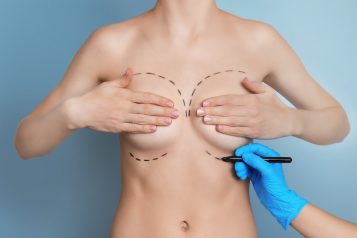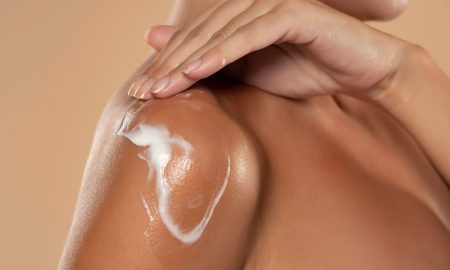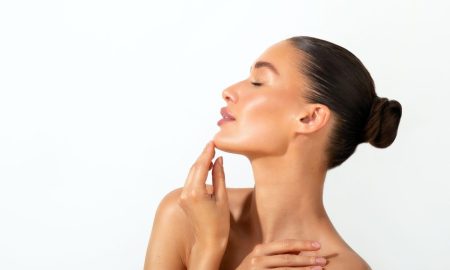Elizabeth Laikhter, BA & Eric Shiah, BA contributed to this article.
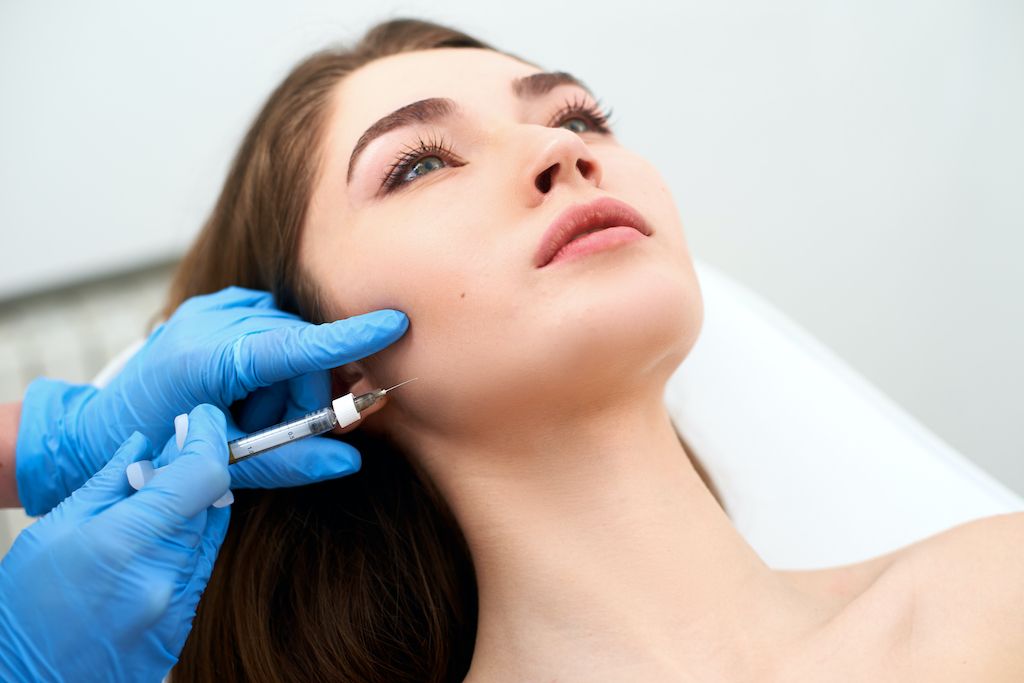 Photo Credit: ShutterstockDr. Samuel Lin is a double board-certified Plastic Surgeon and Associate Professor of Surgery at Harvard Medical School who practices in Boston, Massachusetts. Dr. Lin is an active Board Member of the Susan G. Komen for the Cure and Bright Pink Foundations. Dr. Lin is active in both basic science and clinical research with a focus on face/neck/nose surgery (rhinoplasty), breast surgery (reduction, lift, and reconstruction), and body contouring. He collaborates with engineers, scientists, and other plastic surgeons at other institutions within the New England area, nationally, and internationally. He is the editor of several medical textbooks including Aesthetic Atlas of the Head and Neck, Atlas of Body Contouring, and Plastic and Reconstructive Surgery Pearls of Wisdom and Pearls of Wisdom Second and Third Editions. Haute Beauty Expert Dr. Samuel Lin outlines important information to know about the potential side effects to consider after taking the COVID-19 vaccine if you have facial fillers.
Photo Credit: ShutterstockDr. Samuel Lin is a double board-certified Plastic Surgeon and Associate Professor of Surgery at Harvard Medical School who practices in Boston, Massachusetts. Dr. Lin is an active Board Member of the Susan G. Komen for the Cure and Bright Pink Foundations. Dr. Lin is active in both basic science and clinical research with a focus on face/neck/nose surgery (rhinoplasty), breast surgery (reduction, lift, and reconstruction), and body contouring. He collaborates with engineers, scientists, and other plastic surgeons at other institutions within the New England area, nationally, and internationally. He is the editor of several medical textbooks including Aesthetic Atlas of the Head and Neck, Atlas of Body Contouring, and Plastic and Reconstructive Surgery Pearls of Wisdom and Pearls of Wisdom Second and Third Editions. Haute Beauty Expert Dr. Samuel Lin outlines important information to know about the potential side effects to consider after taking the COVID-19 vaccine if you have facial fillers.
In December 2020, the United States Food and Drug Administration (FDA) granted emergency use authorization of the Pfizer and Moderna COVID-19 vaccines. Following the Centers for Disease Control and Prevention (CDC) guidelines for vaccine distribution, many people working in healthcare or living in long-term care facilities have started receiving their first of two vaccine doses. Vaccine Manufacturing and distribution has been ramping up, and many have received this as wonderful news. As more vaccines become available in the United States, the next thing on many people’s minds will be: is the vaccine safe, and are there side effects?
As with any vaccine, there are potential side effects to be aware of. However, it is also important to keep in mind the risks of not getting vaccinated, most notably the potential of getting infected with the COVID-19 virus.
Uniquely, there have been reports of minor adverse reactions to the COVID-19 vaccine in patients with facial fillers. You may have seen these reports on social media or heard about them from a friend or relative. Regardless of where you heard these claims, they may be making you wary of getting vaccinated when it’s your turn. Here are five things you should know about the COVID-19 vaccine and facial fillers.
What adverse reactions have been reported in patients with facial fillers?
There have been three reports of patients with a history of cosmetic fillers who experienced mild facial swelling shortly after the administration of the Moderna COVID-19 vaccine. One patient experienced lip swelling in addition to facial swelling. Two cases were reported on the day of vaccine administration, and one case was reported two days after vaccination. As vaccines work by boosting the immune system, these were likely due to an inflammatory reaction similar to what is experienced by people with allergies. None of the cases required hospitalization or the use of an EpiPen, and none were considered life-threatening. All three cases fully resolved with oral steroids and antihistamines with no long-term complications.
What precautions should patients with a history of facial fillers take when getting the COVID-19 vaccine?
The adverse reactions recorded to date in patients who have had injectable fillers and have gotten the vaccine are far less concerning than the risks of acquiring and becoming infected with the COVID-19 virus. The American Society for Aesthetic Plastic Surgery states that having a history of fillers should not currently bar someone from being vaccinated, especially given the protective benefits the vaccine can provide.
Often after getting fillers, you may experience redness and swelling in the location of injection. The swelling and redness typically last for a few days. In order to minimize risks of adverse reactions, it may be beneficial to wait at least two weeks before getting vaccinated, or when the residual swelling from filler injections has subsided. It is also important to follow post-treatment instructions and precautions given to you by your plastic surgeon.
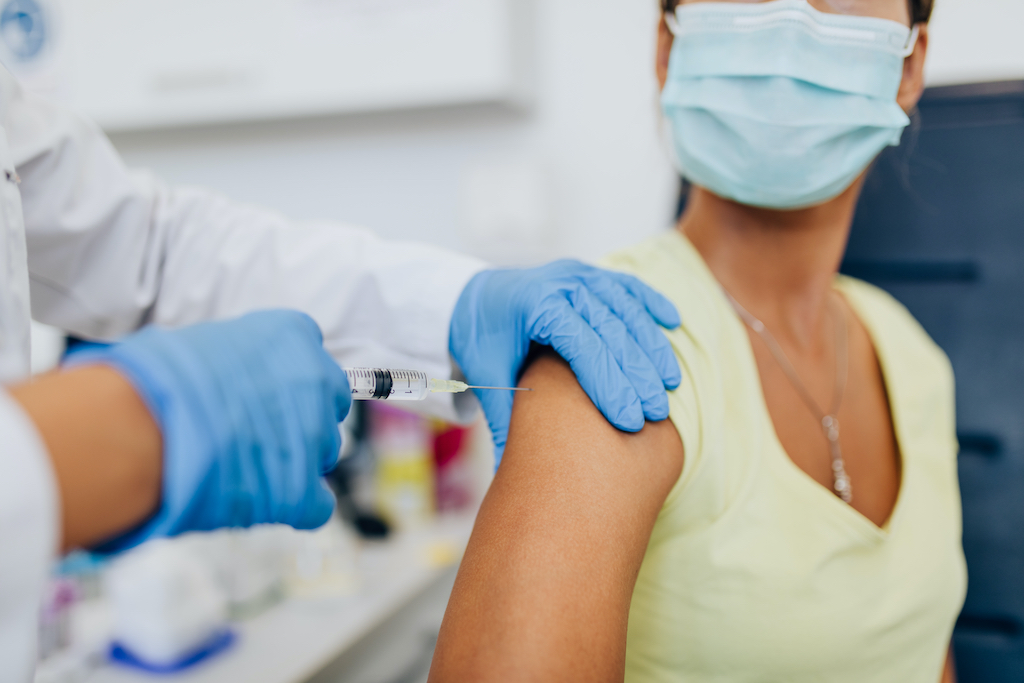 Photo Credit: ShutterstockIf you have a history of allergic reactions or anaphylaxis, it is already recommended that you carry around an EpiPen with you at all times. You can purchase one at your local drug store with a prescription. After receiving your vaccination, it may be a good idea to remain near the health clinic or center for 30 minutes and monitor for immediate adverse reactions. Then, for the next few weeks to months, if you start to notice any kind of facial swelling, you should notify your doctor immediately.
Photo Credit: ShutterstockIf you have a history of allergic reactions or anaphylaxis, it is already recommended that you carry around an EpiPen with you at all times. You can purchase one at your local drug store with a prescription. After receiving your vaccination, it may be a good idea to remain near the health clinic or center for 30 minutes and monitor for immediate adverse reactions. Then, for the next few weeks to months, if you start to notice any kind of facial swelling, you should notify your doctor immediately.
What should I do if I experience facial swelling after getting the COVID-19 vaccine?
Facial swelling in response to vaccination can be explained by the activation of your immune system, which is the primary purpose of vaccines. Incidences of facial swelling have also been reported with other vaccines, including the flu shot. Typically, the swelling is mild, but if you have a history of severe allergic reactions and the swelling becomes severe, you should use your EpiPen. Fortunately, no cases of anaphylaxis have been reported in patients with facial fillers after COVID-19 vaccine administration. For patients without a history of anaphylaxis, antihistamines such as Benadryl are also great options for controlling facial swelling; however, you should also contact your primary care doctor to be evaluated by a healthcare professional.
What other side effects should patients with fillers be aware of?
To date, the only observed side effects related to facial fillers are mild swelling of the face and lip. Otherwise, the side effects for patients with fillers are the same as the side effects for all other individuals receiving vaccinations. This includes temporary pain and swelling at the injection site, fatigue, fevers, chills, and headache. These side effects are not specific to the COVID-19 vaccine and typically resolve on their own within 24 to 48 hours.
Facial swelling has so far only been reported with the Moderna vaccine. Does this mean the Pfizer vaccine is safer for patients with facial fillers?
Although there are no reported adverse reactions to date for patients with dermal fillers who have been given the Pfizer vaccine, there is limited data to determine whether the Pfizer vaccine is definitively safer for these patients. The medical community and FDA are constantly monitoring the safety profiles of both COVID-19 vaccines and will update their recommendations as needed. As long as patients take proper precautionary measures, such as carrying an EpiPen if they have a history of anaphylaxis, either vaccine is currently recommended to improve protection against COVID-19.
The Bottom Line
The American Society for Aesthetic Plastic Surgery and many physicians still highly recommend that patients with cosmetic fillers receive the COVID-19 vaccine, as the risk of falling ill to the COVID-19 virus greatly outweighs the risk of a very rare and minor adverse reaction. If you have any questions or experience any adverse reactions after vaccine administration, please do not hesitate to call your doctor.
For more information, visit Dr. Samuel Lin's social media:






